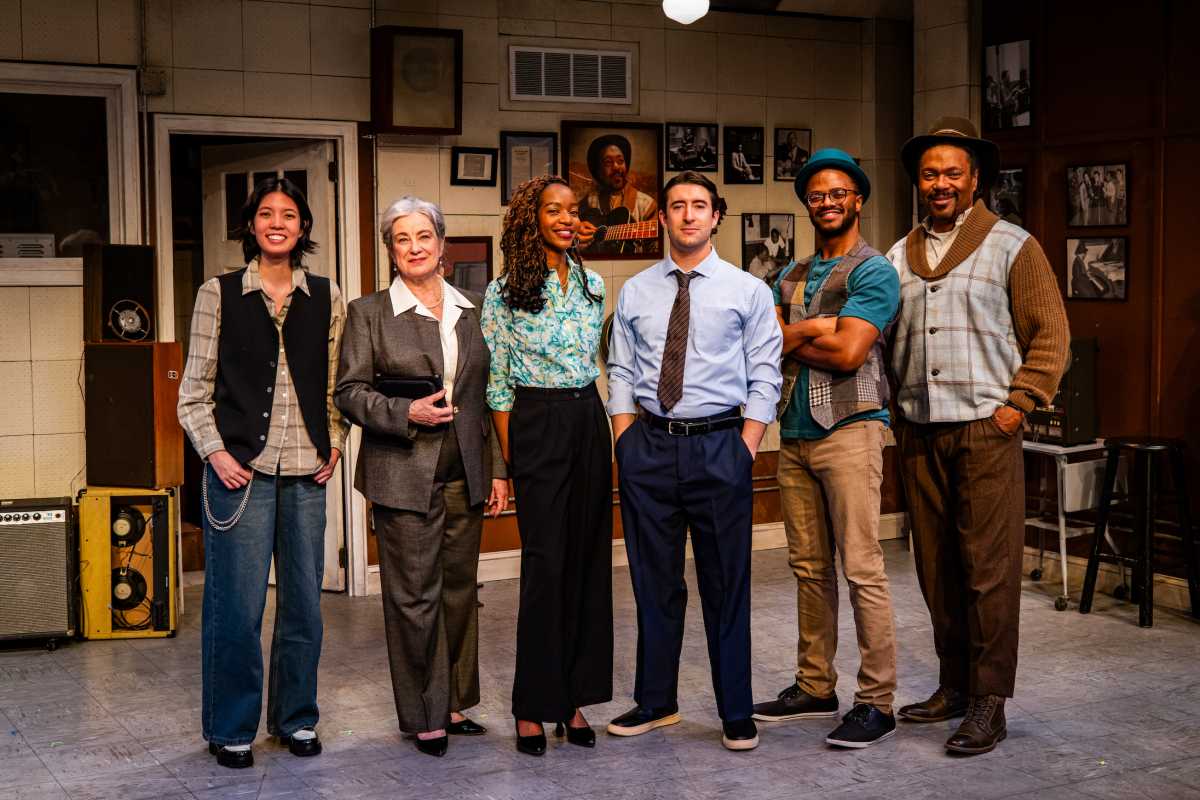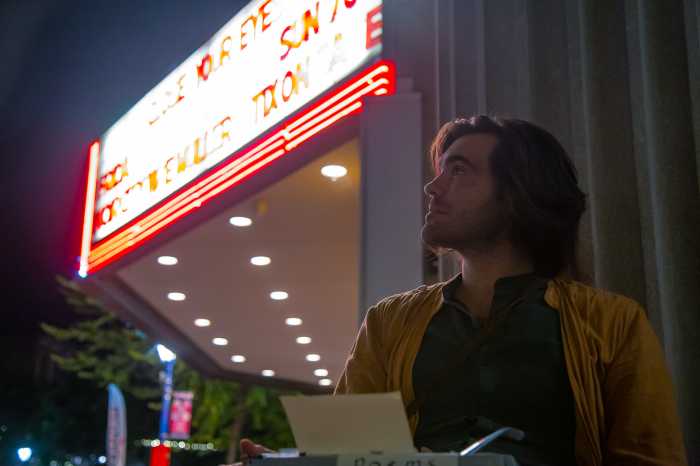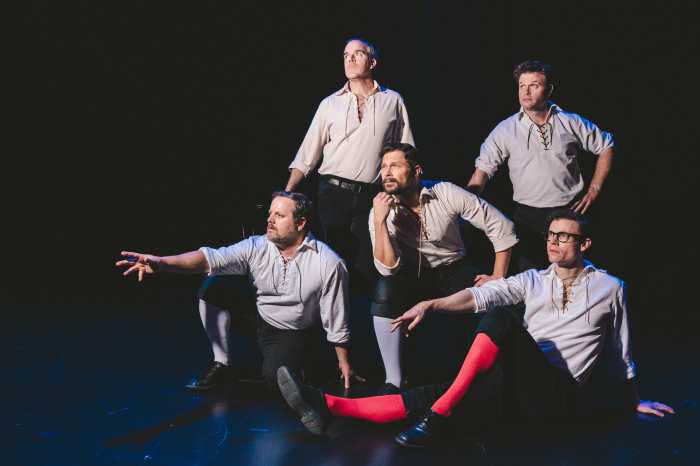Anyone who knows Philly theater knows Michael Hollinger.
The playwright, musician, composer and Villanova University theater professor — additionally, Villanova Theatre’s Artistic Director — has been crafting witty, literate works that actors and audiences love; most famously through the Arden and its boss, Terrence J. Nolen.
Since 1994’s beloved ‘An Empty Plate in the Café Du Grand Boeuf,’ Hollinger and Nolen paired as writer-director on ten productions – including this week’s world premiering ‘Holy Grail of Memphis‘.
Hollinger spoke to Metro about Nolen, Villanova and all that’s great about his ‘Grail.’
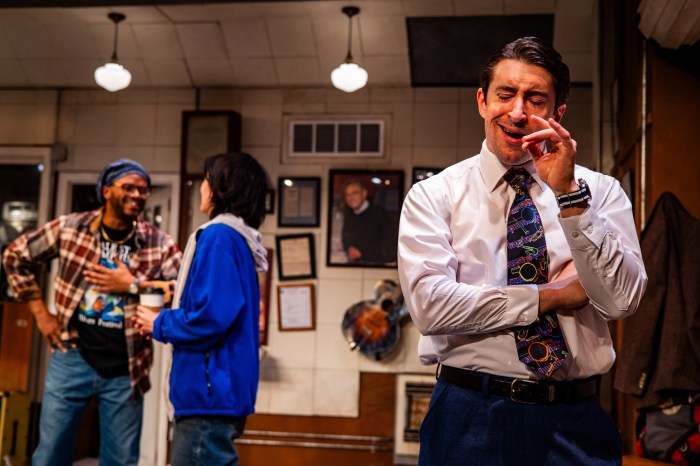
There’s been this Scorsese/DeNiro thing with you and Terry Nolen’s Arden since 1994. What are your memories of how such simpatico became crucial to you as an artist?
One thing Terry and I first connected on was the way I think about a play’s script as one would a classical music score due to my background as a violist. I care about the “notes,” down to the most minute punctuation. Terry is sensitive to that. Obviously, he directs lots of musicals, but even with a straight play, he’s incredibly in tune with rhythms, dynamics and the interplay between voices. You’ll often see him during rehearsal making little hand motions, like a conductor would. That’s not for the actors, but rather for him – he’s clocking the rhythms of the script’s lines in his head.
That level of sensitivity to the way I encode human experience on a page and the way that he decodes it all with actors makes for a special collaboration. That’s why returning to Nolen and the Arden with ‘Holy Grail’ has been a joy. It’s like putting on an old shoe that’s not worn out, yet but fits comfortably well.
Is there a cadence or pattern that exists within your work as a signature – ‘Grail’ included?
I definitely try to set my plays is different worlds, time periods, countries, classes of people. However, within that, the interplay of voices is my thumbprint. If someone tracks my work, you could see the way monologues could be intercut with more quickly moving voices bouncing back-and-forth, like ping pong balls; the way that characters interrupt each other, complete each other’s sentences. Or the way that when scenes heat up, the interchanges get shorter.
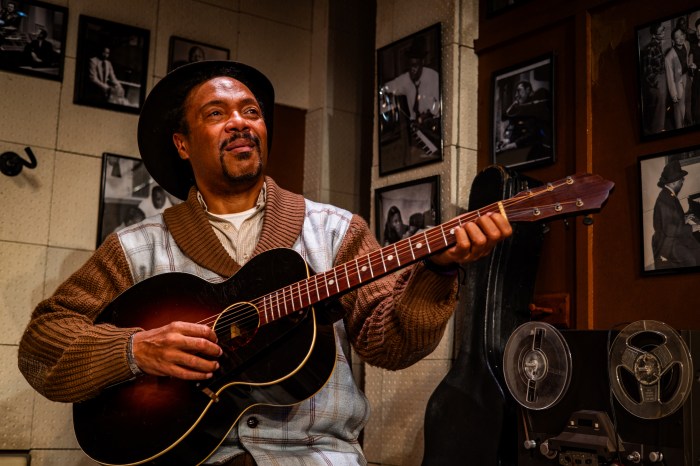
Do you recognize lightning bolt moments where you’re pushed to write a play?
It’s never subtle. Good ideas feel instantaneous, as if “I’m pregnant again — here comes the next 3 to 10 years of my life.” I’m calculating things in my head quickly. Is this an interesting story? Is this complex enough that I can’t easily get to the bottom of it? Does this story feel like it wants be told on stage rather than a short story or song …. This happens quickly.
The spark for ‘Memphis’ came from reading this New York Times story about the discovery of lost tapes from George Jones, the country singer. Lost for 50 years, what hooked me was the notion that playing these potential treasures would literally destroy them. That conundrum was pretty cool to me. That was the spark. Everything unfolded from there.
Nothing’s funnier than the grief found in the blues. Why change ‘Holy Grail’ from country to the blues?
(Laughs) Well, I wasn’t so interested in George Jones — no shade to him — as there wasn’t anything in that music that helped tell the story I wanted to tell: the historic exploitation of Black artists by white producers. You need not dig deep to find those stories – blues, jazz, R&B songwriters and who never got their due. I wanted to dig into those issues through characters I was developing. A pivot such as that is common, where the spark of an idea doesn’t follow in a straight line, but link to other things I’m working on, a catalyst I’m cooking up.
Is there anything autobiographical about ‘Holy Grail’?
As a violist who once wrote a play about string quartets, America’s music history and evolution matters to me. ‘Holy Grail’ has a character — an ethnomusicologist with an eye toward getting his PhD, studying the blues. Ethnomusicologists are like dramaturgs, something I did at the start of my career. Nobody knows exactly what they do, but I think they must be important (laughs).
Working as both an artist and professor, is there an energy from your students that influences you? Are there hot button topics in theater?
One question now is, ‘How do we engage audiences with 30 second-attention spans for plays that are 90 minutes-or-more? Another thing that’s been hot for students is, whose stories do they have the right to tell – especially when I have white students looking to include characters of other ethnicities and backgrounds.
What I say to them is that we’re shape-shifters, storytellers who are empathetic and contain multitudes. We must do our best to tell stories with a broad range of people, with integrity. We need not narrow our focus by saying – say, me – I can only write about white middle-aged academics. Rather, who do I want in the life of my play and how do I best do my homework? How do I create characters different than me, make sure that I’m writing from their perspective, and authentically? Listen better, for one, to everyone.
‘Holy Grail’ is an example of that: two white actors, one woman, one man, three black actors, one of whom is deaf – a character central to a story about music-making and listening, hearing and not-hearing – and one nonbinary character. This is a broad swath of characters; most of whom do not come in the same package that I do.
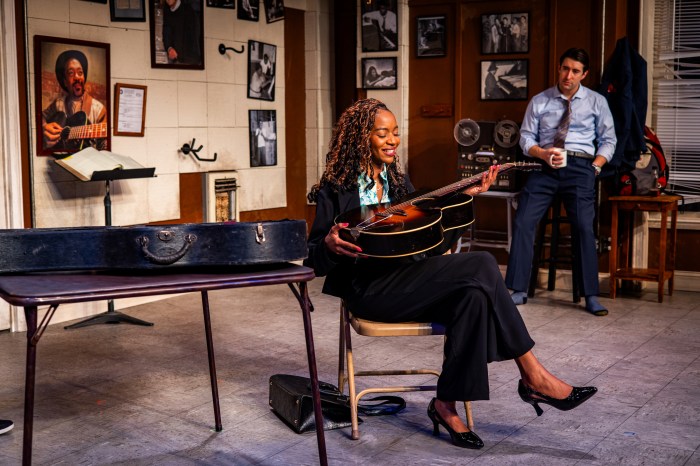
‘Holy Grail of Memphis’ is on stage at Arden Theatre, located at 40 N. 2nd Street, from Jan. 21 through March 2. For more information and to purchase tickets, visit ardentheatre.org



